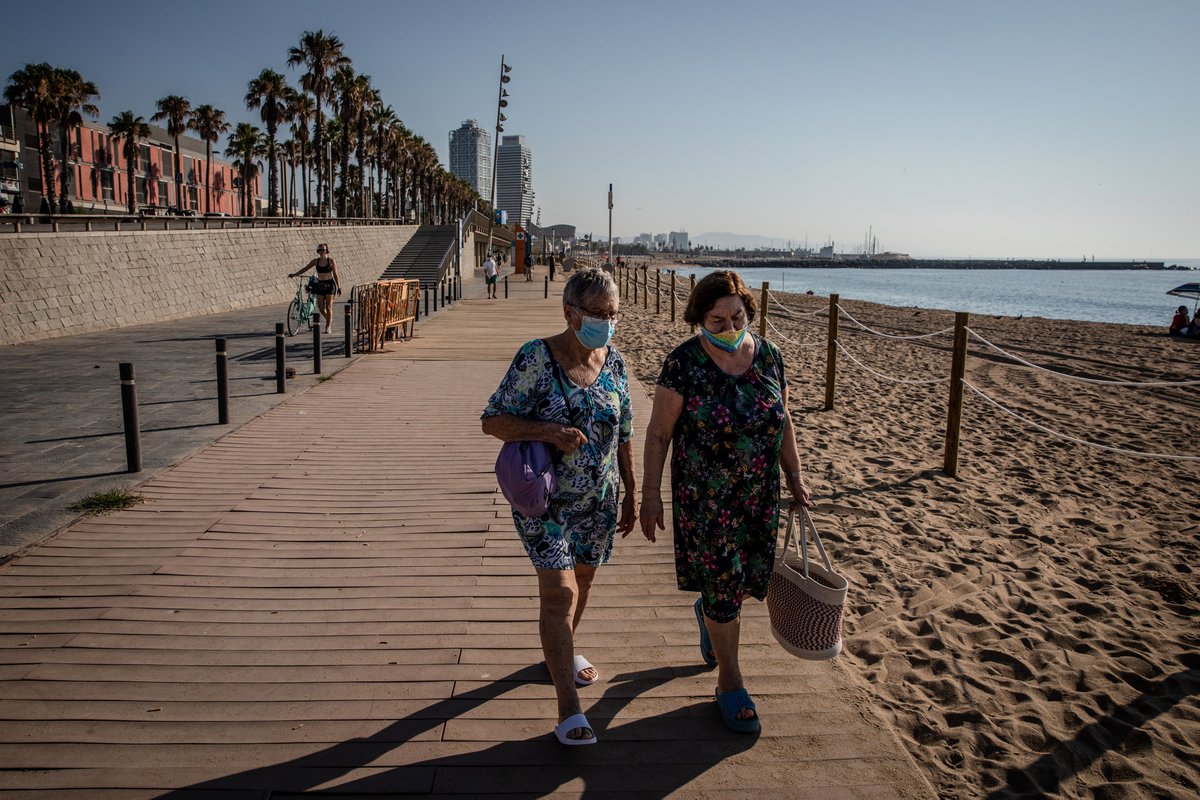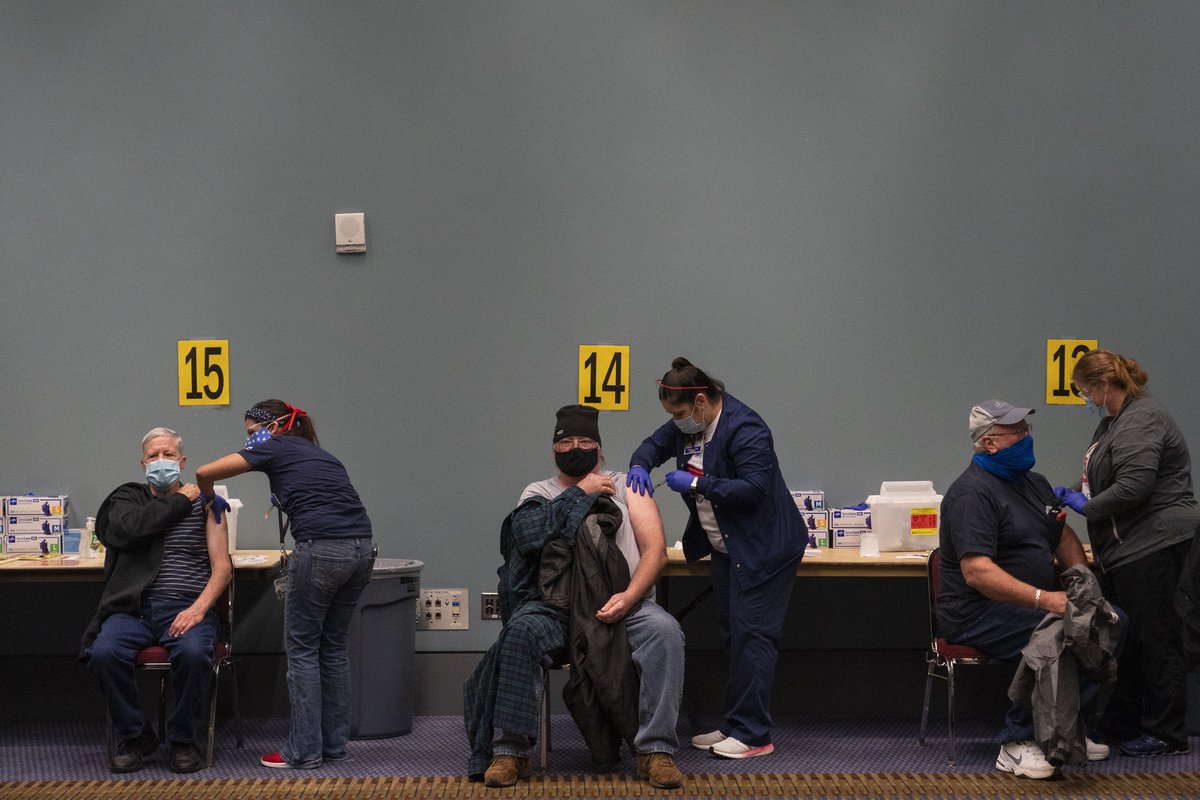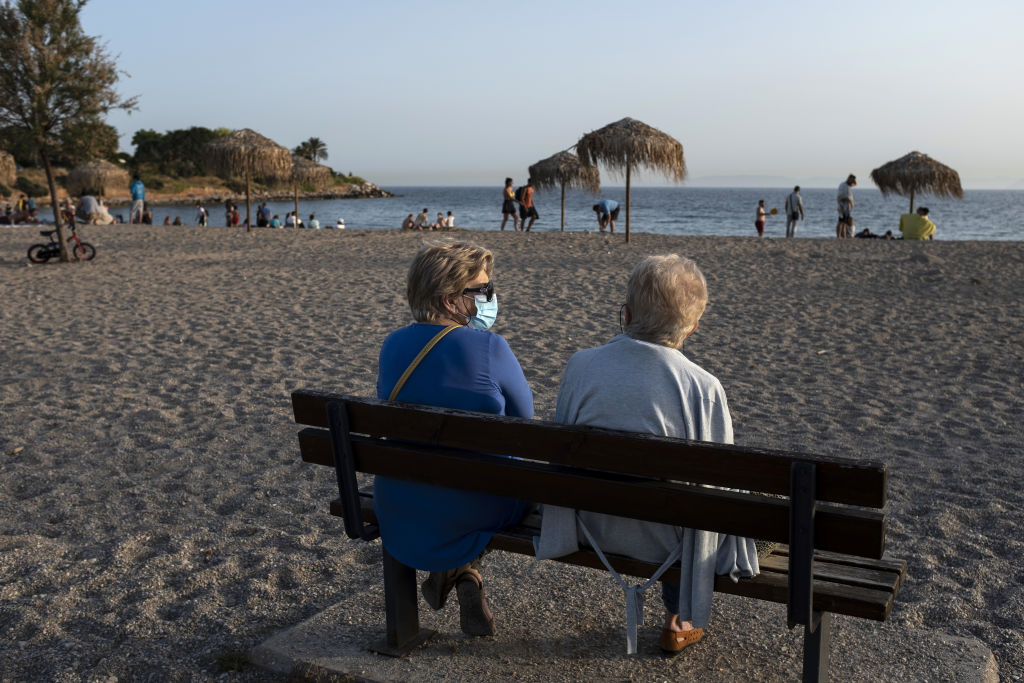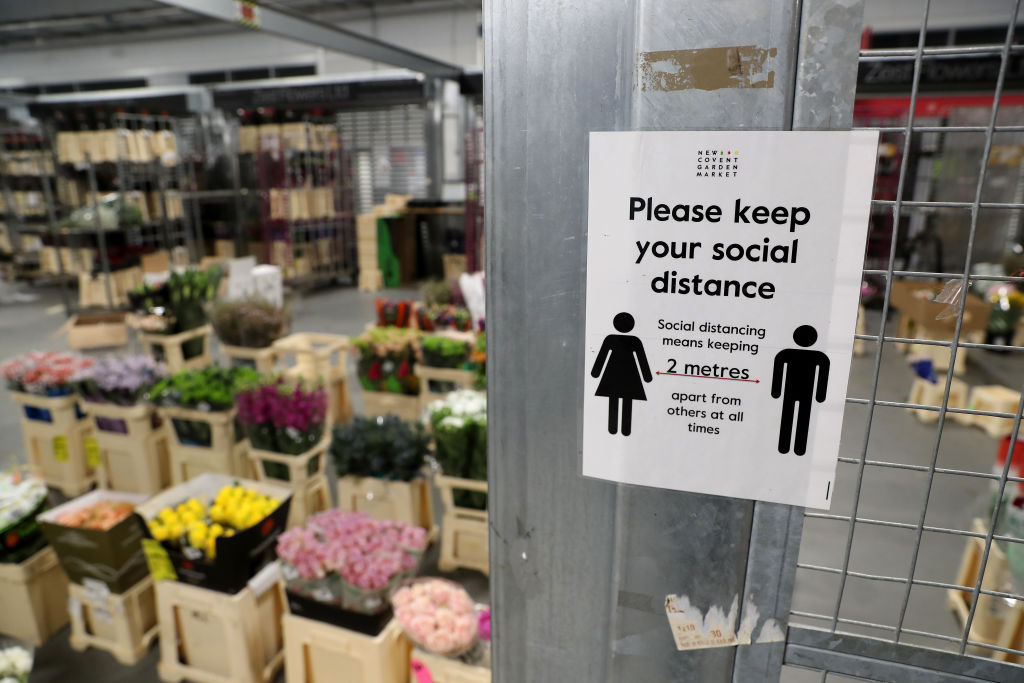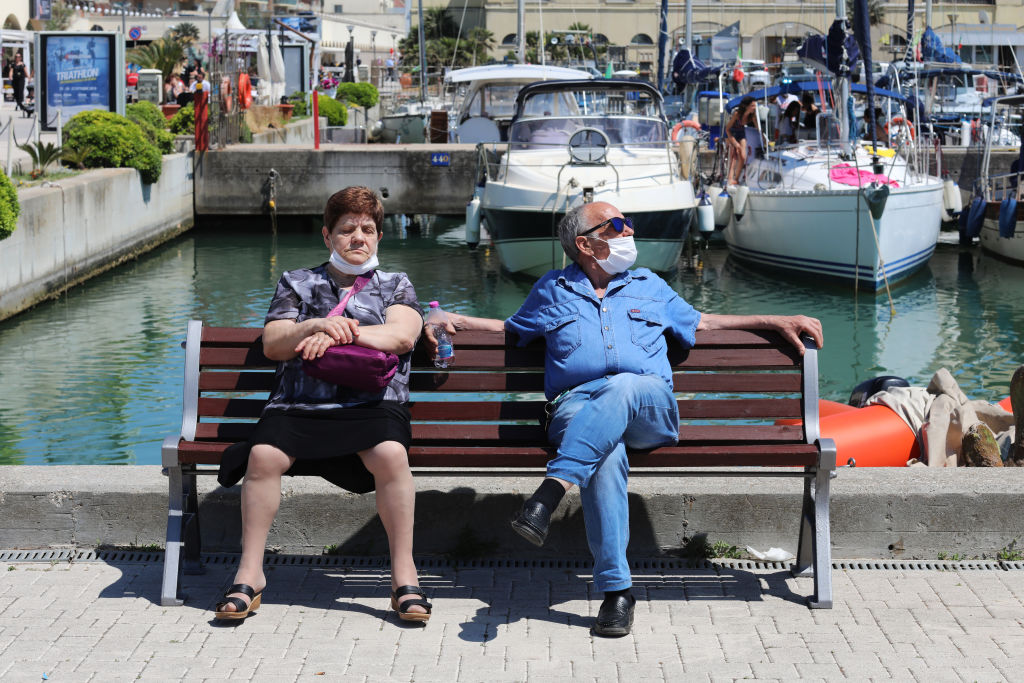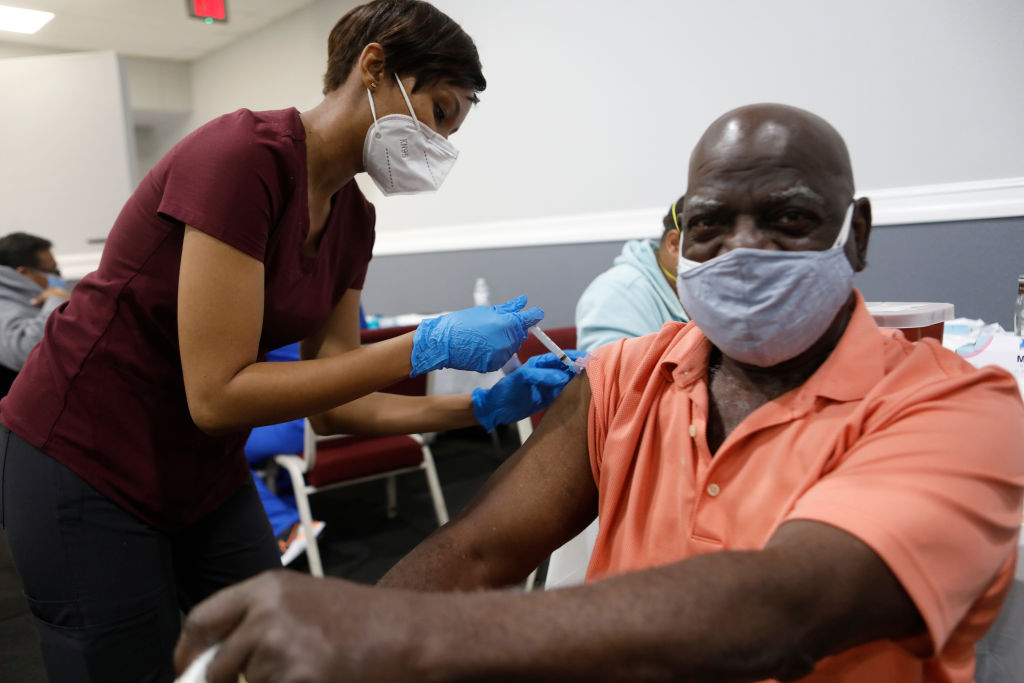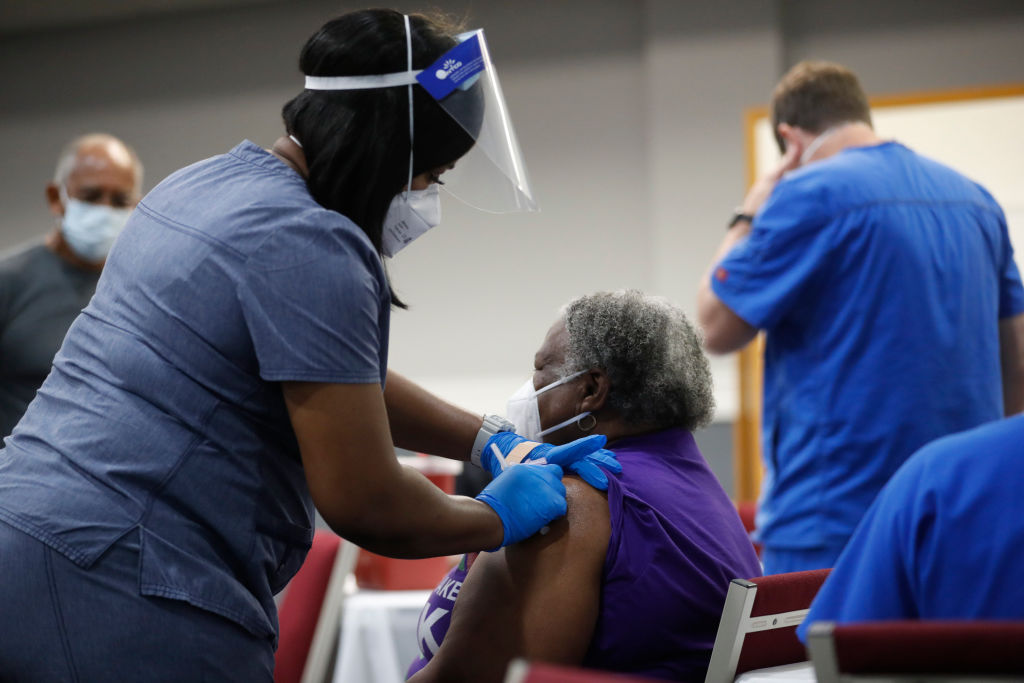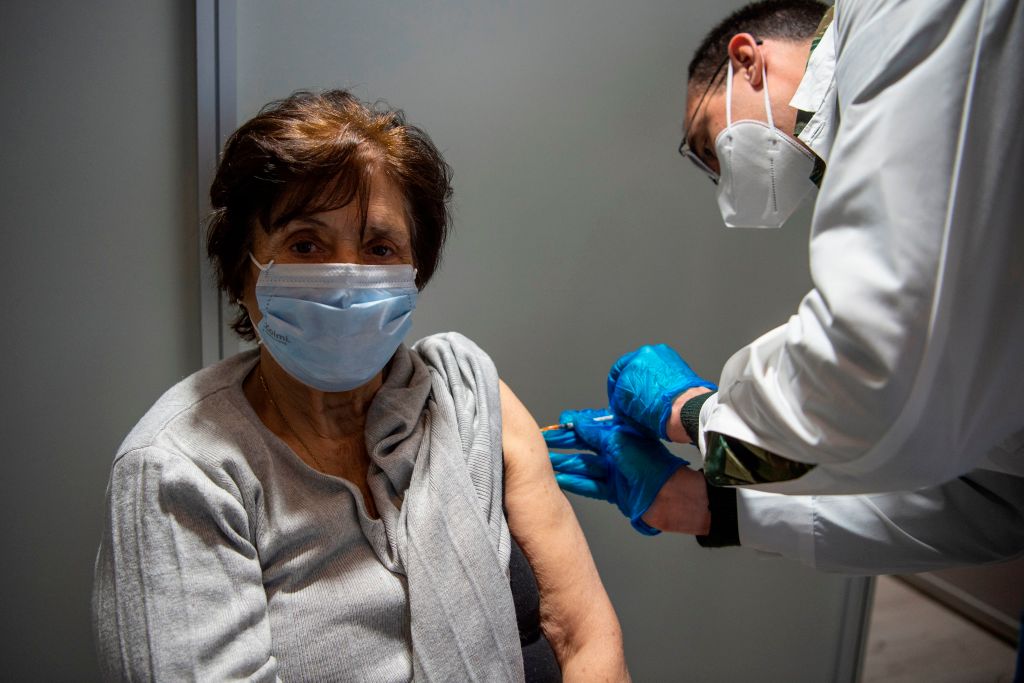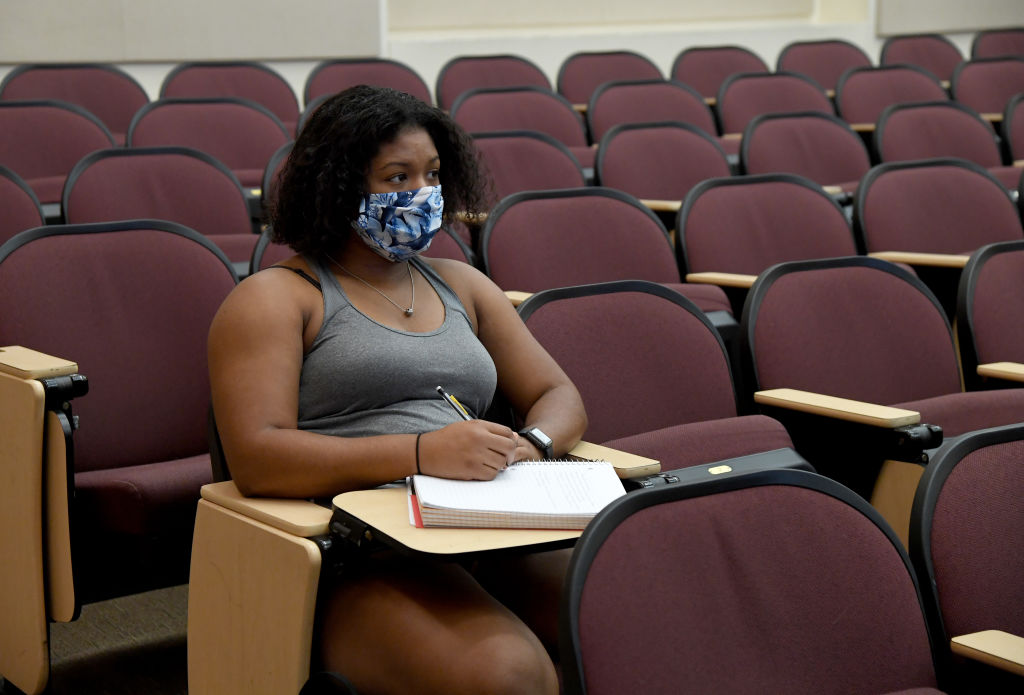With vaccination campaigns underway around the world, governments everywhere are about to face the same ethical dilemma:
How to deal with people who’ve completed their immunisation program https://trib.al/yf2HQXo
How to deal with people who’ve completed their immunisation program https://trib.al/yf2HQXo
The pressure to give back vaccinated folk’s full personal and social liberties, and to let them contribute in full to the economic recovery will be strong.
But states would be unwise to create different classes of citizens https://trib.al/yf2HQXo
But states would be unwise to create different classes of citizens https://trib.al/yf2HQXo
At least 28 million citizens globally have received both jabs needed to be effective:
 U.S. 14 million
U.S. 14 million
 EU 7.1 million
EU 7.1 million
 Israel 2.5 million
Israel 2.5 million
The world’s population is slightly less than 8 billion, so the proportion is tiny. But it will grow quickly https://trib.al/yf2HQXo
 U.S. 14 million
U.S. 14 million EU 7.1 million
EU 7.1 million  Israel 2.5 million
Israel 2.5 millionThe world’s population is slightly less than 8 billion, so the proportion is tiny. But it will grow quickly https://trib.al/yf2HQXo
Greece is especially keen on the idea of Covid passports to rescue its tourist-dependent economy.
Greece and Israel have already agreed that inoculated people will be allowed to move freely between the two countries when travel restarts http://trib.al/yf2HQXo
Greece and Israel have already agreed that inoculated people will be allowed to move freely between the two countries when travel restarts http://trib.al/yf2HQXo
Travel is only one example of what immunized citizens might want to do. Why not let them:
 Eat in restaurants
Eat in restaurants
 Attend concerts
Attend concerts
 Eschew masks
Eschew masks
Businesses would be delighted to host the doctors, nurses and wealthy pensioners who’ve been prioritized http://trib.al/yf2HQXo
 Eat in restaurants
Eat in restaurants Attend concerts
Attend concerts Eschew masks
Eschew masksBusinesses would be delighted to host the doctors, nurses and wealthy pensioners who’ve been prioritized http://trib.al/yf2HQXo
There are two things that support the case of preferential treatment for inoculated people:
 Freedoms have been taken from citizens in order to contain the virus. That’s harder to justify post-vaccination
Freedoms have been taken from citizens in order to contain the virus. That’s harder to justify post-vaccination
 It would help suffering businesses http://trib.al/yf2HQXo
It would help suffering businesses http://trib.al/yf2HQXo
 Freedoms have been taken from citizens in order to contain the virus. That’s harder to justify post-vaccination
Freedoms have been taken from citizens in order to contain the virus. That’s harder to justify post-vaccination It would help suffering businesses http://trib.al/yf2HQXo
It would help suffering businesses http://trib.al/yf2HQXo
But this route would clash with medical and ethical considerations.
For starters, we still know little about how far each vaccine limits people’s infectiousness. The evidence is promising, but we need more studies before loosening social distancing rules http://trib.al/yf2HQXo
For starters, we still know little about how far each vaccine limits people’s infectiousness. The evidence is promising, but we need more studies before loosening social distancing rules http://trib.al/yf2HQXo
Yet, even if we do discover that vaccinated individuals cannot spread Covid-19, there are strong moral arguments against giving unfettered liberty to one set of citizens and continuing to restrict everyone else http://trib.al/yf2HQXo
While it’s right that vulnerable and exposed categories get the shots first, it wouldn’t be fair to give them benefits denied to everyone else.
Allowing this would create tensions in society and lay the ground for an ugly fight over access to vaccines http://trib.al/yf2HQXo
Allowing this would create tensions in society and lay the ground for an ugly fight over access to vaccines http://trib.al/yf2HQXo
Governments should at least wait until vaccines are available widely before introducing selective freedom.
Even then, it might be hard to enforce such rules legally, especially as some individuals may not be able to receive a vaccine for medical reasons http://trib.al/yf2HQXo
Even then, it might be hard to enforce such rules legally, especially as some individuals may not be able to receive a vaccine for medical reasons http://trib.al/yf2HQXo
The question of how to treat the inoculated doesn’t relate only to the state:
 Should employers be able to fire those workers who refuse to receive a vaccine?
Should employers be able to fire those workers who refuse to receive a vaccine?
 Should restaurant owners be allowed to discriminate against vaccine skeptics? http://trib.al/yf2HQXo
Should restaurant owners be allowed to discriminate against vaccine skeptics? http://trib.al/yf2HQXo
 Should employers be able to fire those workers who refuse to receive a vaccine?
Should employers be able to fire those workers who refuse to receive a vaccine?  Should restaurant owners be allowed to discriminate against vaccine skeptics? http://trib.al/yf2HQXo
Should restaurant owners be allowed to discriminate against vaccine skeptics? http://trib.al/yf2HQXo
It’s tempting for businesses to think of happy baby boomers flocking to beaches, football matches and cafes, but inter-generational fairness looms large in this debate http://trib.al/yf2HQXo
Gen Z has had to accept restrictions to keep their elders healthy, even though the risks of Covid are minimal for younger people.
It’s best instead to concentrate on a speedy vaccination program http://trib.al/yf2HQXo
It’s best instead to concentrate on a speedy vaccination program http://trib.al/yf2HQXo

 Read on Twitter
Read on Twitter